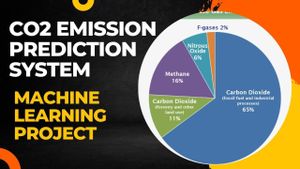DeepSeek, a newly launched Chinese artificial intelligence application, has sparked significant turmoil within global markets and the technology industry. The AI app, making headlines for its astonishing capabilities and low operational costs, threatens to disrupt the dominance of American AI companies.
The app’s debut has reshuffled investor confidence and stirred alarm among industry analysts. On Monday, shares of Nvidia, the leading supplier of high-end chips for AI applications, experienced a staggering 17% drop, wiping nearly $600 billion off its market value. This market hit came as investors rushed to adjust their holdings, prompted by DeepSeek’s claim to deliver AI performance at merely $5 million—far less than competitors like OpenAI, who reportedly incurred over $100 million to develop their latest model, GPT-4.
US President Donald Trump characterized the situation as "a wake-up call" for the American tech industry but also expressed cautious optimism about the potential benefits of such competition. “If you could do it cheaper, if you could do it [for] less [and] get to the same end result, I think that's a good thing for us,” he stated on board Air Force One. This sentiment, reflecting both alarm and opportunity, captures the complex reactions brewing within the AI sector.
Founded by Liang Wenfeng, DeepSeek emerged unexpectedly as the most downloaded app shortly after its launch. The 40-year-old entrepreneur, who had previously set up the hedge fund backing DeepSeek, has been strategically positioning the company within the fast-paced AI battleground. Industry experts highlighted DeepSeek's ability to rival sophisticated US models, indicating not only advances in technology but also the turbulence facing traditional companies.
Marina Zhang, from the University of Technology Sydney, underscored the significance of DeepSeek’s strategy. "DeepSeek's ability to rival US models demonstrates software ingenuity and data efficiency can compensate for hardware constraints," she said, emphasizing the innovation occurring behind the scenes. This perspective indicates a shifting paradigm as companies scramble to reevaluate their investments and innovations.
The ramifications extended beyond the markets, igniting discussions about the geopolitical nature of AI competition. Many analysts now view DeepSeek's success as both pivotal and concerning, leading to quickened assessments about the timeline and emergence of 'superintelligence'—a potential point where AI could surpass human capabilities.
While US companies have lauded the impressive techniques utilized by DeepSeek, accusations surfaced of potential intellectual property concerns. Howard Lutnick, the US Commerce Secretary, suggested illegal tech transfer was at play, criticizing China for "leveraging what they've taken from us, stolen from us" to innovate. Such claims may reflect underlying tensions as countries navigate their positions within the AI arms race.
Meanwhile, as U.S. officials look deeply at national security ramifications stemming from DeepSeek's rapid rise, countries like those within the European Union are pushing for stricter regulatory frameworks around AI development and utilization. This reaction aligns with concerns among global leaders about unchecked technological advancement leading to data privacy violations and broader societal impacts.
Ed Husic, Australia's Science Minister, echoed these sentiments, asserting, "There are lots of questions… on quality, consumer preferences, data and privacy management." This caution signals the increasing scrutiny surrounding AI as nations grapple with the pace of technology outstripping regulatory frameworks.
Looking to the future, analysts predict the proliferation of AI technologies will continue, driven by models like DeepSeek, which have proven effective even with reduced costs. This situation presents nuanced challenges for traditional tech giants, potentially leading to disruption within the established hierarchies of tech development.
“Although the low-cost AI model unveiled by DeepSeek offers potential for the reuse of cheaper chips, if there’s more widespread use of AI, it means larger market demands overall,” noted Susannah Streeter, Head of Money and Markets at Hargreaves Lansdown. This leads to the idea of Jevons Paradox, where greater efficiency potentially could result in increased overall usage rather than decreased demand.
The strategic move by DeepSeek to open-source its model has only accelerated the competition. Economists and industry leaders alike acknowledge the potential of open-source technology to level the playing field, permitting smaller firms to engage and innovate within the space once dominated by larger entities.
Mark Kelly from AI Ireland warned of ripple effects throughout international markets: "The chances of this having a ripple effect are very big because they are investing heavily, and if they don’t get the outcomes they expect, then it will lead to job losses."
Nonetheless, the conversation surrounding DeepSeek has ignited excitement among smaller enterprises and startups. They are now empowered to leverage this technology to compete, which could prompt widespread innovation within the industry.
Concerns remain, particularly around consumer data protection. The policy note from Ireland’s Data Protection Commission highlights the necessity for transparency. Data stored within China by DeepSeek raises alarms about how international data must be managed responsibly.
Politicians are now treading carefully, debating regulatory measures necessary to maintain safety without stifling innovation. The balance of focusing on fostering AI technology alongside ethical standards is the new frontier as this pivotal moment reshapes technology's role within society.
While opinions differ on the exact ramifications of DeepSeek’s rise, one trend is abundantly clear—AI is changing faster than governments and industries can adapt. The impact of this Chinese competitor is not just limited to stock prices; it signifies shifting paradigms within technological advancements and geopolitical strategies. So, can the world keep pace? Only time will tell.



